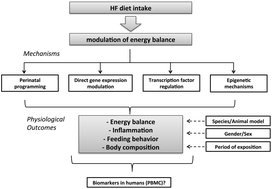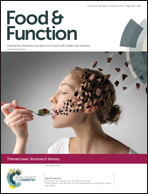Gene expression modulation of lipid and central energetic metabolism related genes by high-fat diet intake in the main homeostatic tissues
Abstract
It is generally assumed that high-fat (HF) diets induce characteristic gene expression regulation, which may cause metabolic alterations associated with an increased risk of obesity, metabolic syndrome and other health alterations. However, an integrative analysis of the effects in different tissues is lacking, thus preventing new strategies to prevent or counteract permanent consequences. This review particularly focuses on lipid metabolism gene expression modulation in key homeostatic tissues in response to HF diet intake. The effects of HF diets on gene expression are mediated by insulin, leptin and nutrients such as fatty acids (FA) and glucose that alter insulin signalling. As a general trend, HF diet feeding induces the expression of catabolism related genes and reduces the expression of lipogenic related genes in the main homeostatic tissues. However, the effects of HF diets on gene expression depend on the amount and composition of fat, and there are specific effects in different animal models. From another angle, delayed effects associated with long-lasting changes caused by metabolic imprinting are of increasing interest. Finally, when considering the need for biomarkers of early metabolic effects, it is noticeable that many transcriptional adaptations that occur in tissues are reflected in peripheral blood mononuclear cells, which offers the possibility of using these minimally invasive samples in human studies.



 Please wait while we load your content...
Please wait while we load your content...